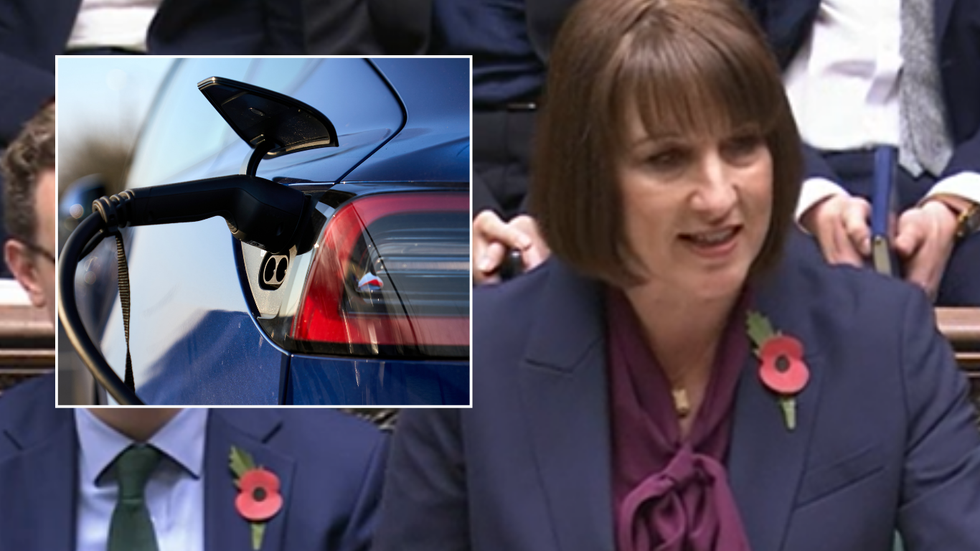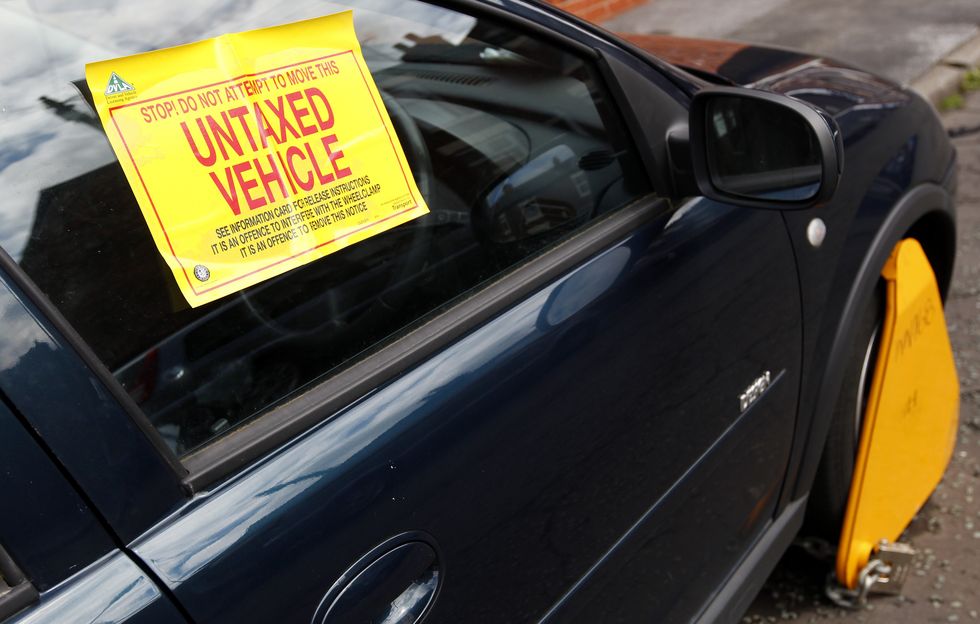WATCH: Rachel Reeves says she will continue to support the purchasing of electric vehicles
GB NEWS
Drivers can get a maximum discount of 35 per cent off certain vehicles
Don't Miss
Most Read
Trending on GB News
Labour has reaffirmed its commitment to help drivers purchase an electric vehicle despite increasing the tax threshold in this year's Autumn Budget.
Certain types of low-emission vehicles are eligible for a grant from the Government to help lower the costs including wheelchair accessible vehicles, motorcycles, small and large vans, small and large trucks and taxis.
In total, drivers could get up to 35 per cent off certain electric vehicles with the new Labour Government footing the majority of the bill.
Under the current grant scheme, wheelchair accessible vehicles can receive a maximum discount of £2,500, provided they have zero CO2 emissions and can travel at least 70 miles without emissions.
Do you have a story you'd like to share? Get in touch by emailingmotoring@gbnews.uk
 The Department for Transport will continue to support plug-in vehicle grantsGETTY/GB NEWS
The Department for Transport will continue to support plug-in vehicle grantsGETTY/GB NEWSThe grants apply to converted passenger vehicles costing less than £35,000, including popular models like the Citroen e-Berlingo and Peugeot e-Rifter.
A similar 35 per cent discount is available for motorcycles, with a £500 maximum discount on eligible vehicles priced under £10,000. Small vans can receive up to £2,500 in discounts, while larger vans between 2,500kg and 4,250kg are eligible for up to £5,000 off the purchase price. Purpose-built taxis which meet emissions criteria can benefit from discounts of up to £6,000.
While the grants look to support the transition away from petrol and diesel vehicles, it could be met with heavy criticism as substantial tax increases creep in next April.
The new Vehicle Excise Duty (VED) hikes, which were announced by Chancellor Rachel Reeves during this year's Autumn Budget, will see some motorists charged double, with electric car owners set to face taxes for the first time.
From April 2025, VED rates will increase for most vehicles, with zero-emission cars paying the lowest rate of £10 until 2029-30. Hybrid vehicles emitting between one and 50g/km of CO2 will see first-year rates jump from £10 to £110.
Cars producing 51-75g/km will face an increase from £30 to £130. However, the Budget saw more significant changes impact vehicles emitting over 76g/km of CO2, with rates set to double. The changes will see car taxes in the 76-90g/km category rise from £135 to £270.
But the highest increases target the most polluting vehicles producing over 255g/km of CO2, with first-year rates increasing from £2,745 to a whopping £5,490.
These changes are part of the Government's strategy to make clearer differences between zero emission, hybrid and vehicles with internal combustion engines.
Commenting on the Budget increases in car taxes, Nicholas Lyes, director of policy and standards at IAM RoadSmart said at the time: “Increasing vehicle excise duty on all but zero emission vehicles in the first year will hit those buying new conventional vehicles in the pocket.”
He suggested an alternative approach to encourage electric vehicle adoption noting that a better solution would be to cut VAT on the sale of new electric vehicles with a list price of £40,000 and under.
Under the previous Conservative Government, drivers could apply for the Plug-in Car Grant which gave them £5,000 off an electric car, although this was slowly adjusted a discount of £1,500 before being scrapped completely in 2022.
LATEST DEVELOPMENTS:
- Edinburgh and London rank top for cleanest air despite millions of drivers being slapped with fines
- British drivers see fuel prices at 'three-year-low' ahead of huge petrol station changes launching soon
- Major car brand pledges to sell petrol and diesel cars 'for as long as we are allowed' despite EV switch

The most polluting vehicles could see their car tax costs jump to almost £5,500
PAWhile operational, it saw almost half a million electric cars bought during the 11 year-period helping contribute to the switch away from petrol and diesel vehicles.








